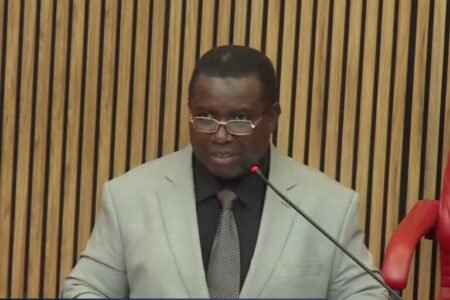In a massive international operation aimed at combating an increase in online sexual extortion scams, the Federal Bureau of Investigation (FBI) has arrested 22 Nigerian nationals accused of orchestrating a series of sextortion schemes that have resulted in the suicides of more than 20 teenage boys in the United States since 2021.
The arrests were made as part of Operation Artemis, a historic collaboration between Nigerian, American, Canadian, Australian, and British law enforcement authorities.
The individuals were apprehended following a nearly two-year investigation into online sextortion rings targeting adolescent males via social media platforms.
According to a statement posted on the FBI’s website, criminals posed as young ladies online, luring victims into submitting sexually graphic photographs.
Once collected, the photographs were used to extort money from the victims, threatening them with public exposure. In many cases, even after payments were made, the threats continued—pushing some victims to fatal ends.
“This is not a victimless crime,” said Special Agent Karen R., who coordinated the Bureau’s involvement. “These are real children suffering real consequences.”
In 2021, the FBI began investigating thousands of reports, identifying digital evidence linking many of the scams back to Nigeria.
In early 2023, agents from the Child Exploitation Operational Unit and forensic analysts discovered linkages to suspects in Nigeria, including incidents where victims committed suicide.
In the summer of 2023, an FBI team, along with agents from the Australian Federal Police (AFP) and the Royal Canadian Mounted Police (RCMP), set up a temporary command post in Lagos.
They worked with Nigeria’s Economic and Financial Crimes Commission (EFCC) to target individuals using precise digital tracking and coordinated searches.
“No matter how good the FBI is, they may not be able to penetrate our terrain the way we do,” said Michael Wetkas, EFCC zone commander. “We know the terrain very well, and that was crucial to the success of this operation.”
Devices confiscated during the arrests yielded troves of digital evidence, including communications, photos, and data contradicting suspects’ denials. Analysts and forensic professionals were present during the interviews to confront subjects with irrefutable evidence of their activities.
“You can’t really say you didn’t do it when we’re seeing it right here on your phone,” said Thomas Million, an FBI analyst who worked on the operation.
Aside from making arrests, the operation aimed to convey a strong message in Nigeria, where economic hardship and unemployment have pushed some youth into cybercrime.
“They don’t actually see the suffering of the victims. To them, it’s just a game,” said Abba Sambo, a supervisor at Nigeria’s EFCC.
U.S. officials are optimistic that the operation will act as a deterrent.
“An operation like this is a strong message to criminals that their acts will not go unpunished,” said Michael Ervin of the U.S. Consulate in Lagos.
The FBI and its international partners continue to review evidence from the arrests and track prospective victims. Authorities advise parents and guardians to talk to their children about online safety and report any suspicious behaviour to police enforcement right away.










